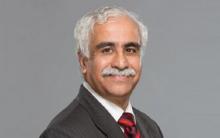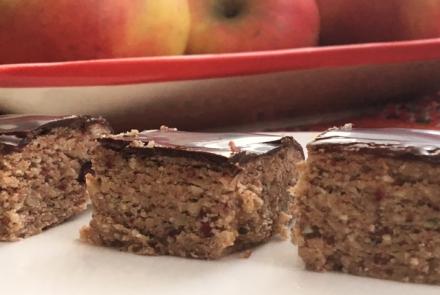
There is increased evidence and understanding that chronic digestive disorders like IBS, IBD and gastrophageal reflux cannot be separated from the psychological wellbeing of a person. In light of this, we spoke to Dr. Naresh Bhat, a pioneering gastroentrologist and Dr. Girish Chandra, a Psychiatrist.
Dr. Naresh Bhat, Chief of Gastroentrology, Aster CMI Hospital, Bengaluru
There are several disorders which are referred as Gut Brain Axis or Functional GI disorders. They can affect any part from the esophagus, stomach, intestine, biliary tract and anorectum. They include IBS, functional dyspepsia, dyssynergic defecation (trouble passing stool), functional heart burn. The gut nerves and microbiome send signals and in return gets modulated by the brain. These result in several symptoms which cause poor quality of life in patients. The diagnosis is based largely on symptoms and the absence of any organic disease and is hence very challenging. Most of them are dealt with by a Gastroenterologist.
Psychotherapy or Psychiatric help is sought only in exceptional conditions as a Gastroenterologist acts as a physician, therapist and counsellor to enable better rapport and care. There is therefore a need for an experienced GI physician with skills in all these roles. Referral to psychiatrists for these patients lead to multiple referrals, care providers and polypharmacy.
However, in the context of significant anxiety or depressive illness the role of psychiatrist is invaluable to provide entire care for the patient.
Dr. Girish Chandra, Sr. Consultant, Psychiatry, Aster CMI Hospital, Bengaluru
How does a chronic GI condition connect to mental health? What are the features of the brain-gut connection?
Chronic GI condition can be secondary to underlying mental health condition. Most of the times patients will not know that they are struggling with constipation, loose motion, flatulence, burning epigastric pain, repeated belching etc. These symptoms can increase whenever they are under stress and also when anxious. On the other hand – chronic GI condition can cause a lot of distress due to the suffering, repeatedly facing supposedly embarrassing situations, inability to do their best in their occupation or social life due to the nature of symptoms.
The build-up of stress hormones in the body can affect how the brain is able to control the body. It can subsequently lead to lot of other symptoms – sometimes, GI symptoms, along with anxiety or depression.
In your experience, how many such as seek help? What are the common barriers in seeking psychiatric help?
Almost every one of these patients seek help, usually with their family Doctor or general physician and at times directly with gastroenterologist. Very rarely they come to see a Psychiatrist in the first approach. Most good doctors are able to go to the bottom of the problem and see the reasons for suffering as due to mental health and they refer to a Psychiatrist for review. Also sometimes there can be co-morbidity of a chronic GI condition along with mental health condition which needs Psychiatrist input.
Some of the barriers are lack of knowledge and understanding. Sometimes it can also be because of stigma. Many times patients will not come to terms with how GI problem can be mental health related.
What are the common underlying GI conditions you see in your practice?
Many of the patients suffering from GI conditions would have seen many doctors before coming to see a Psychiatrist. Many of them would have gone through a lot of investigations and that too on many occasions. Symptoms of gastritis, frequently having to go to toilet, increase in bowel habits when under stress, preoccupation with their bowel habit is affecting them in their day to day functioning, GI problem is not allowing them to sleep well. They end up with reduced appetite and subsequent weight loss.
What are treatment options for these patients?
The responsibility of the Psychiatrist is to make sure the GI problem is secondary to mental health problem. Once it is established, then assess the underlying mental health problem and come up with a treatment plan in collaboration with the patient. In the case of mental health problem secondary to chronic GI problem, assess the problem in detail and come up with treatment plan. Treatment plan usually involves – making sure patient has a good, healthy routine. Encourage patient to exercise at least 40 minutes, 4-5 times a week along with counselling and psychological therapy. Medications should be taken as prescribed or whenever the symptoms are very severe, and it is affecting their life significantly.
What are neuromodulators, how do they complement behavioural therapies?
Neuromodulation can be a technical procedure like nerve stimulation, it can a certain medication which will influence how the brain is functioning, it can also be a psychological treatment working on cognitions to influence how the brain is working.
There are behavioural Neuromodulation techniques which a trained professional can do with patients. which can help a patient's chronic GI problem.
References
1. Best Practice Update: Incorporating Psychogastroenterology Into Management of Digestive Disorders https://doi.org/10.1053/J.GASTRO.2018.01.045

Dr. Naresh Bhat, Chief of Gastroentrology, Aster CMI Hospital
His core strengths are clinical gastroenterology and advanced endoscopy. Dr. Bhat is the chairman of the Indian NBI group and trains endoscopists in India and Asia in advanced endoscopic imaging.
Over 30 years as a pioneering gastroenterologist in the country. He leads a team of gastroenterologists with experience in different areas like IBD, pancreatic disease, Metabolic liver disease and Motility disorders to form the Centre of Excellence in Gastroenterology and Liver Disease. He is presently President-Elect of AIGE, Governing Council member Indian Society Gastroenterology and President ISG Karnataka.

Dr. Girish Chandra, Sr. Consultant, Psychiatry, Aster CMI Hospital
Completed Psychiatry training at NIMHANS, trained as a Registrar in Psychiatry in Western Australia, Specialist Training with GMC, UK. Has worked in Australia and England as a Consultant Psychiatrist. Also held various administrative responsibilities like Clinical Lead, Clinical Director etc.















